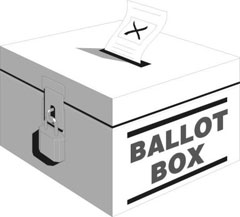The economy is certainly a factor in some of the wavering. Some law makers and many business groups say passing what is generally perceived as a law that is unfriendly to business is the last thing needed given the US and global recession.
 Business groups, meanwhile, are lobbying hard to prevent the bill’s passage. They are working Capitol Hill hard, and have spent some $30 million dollars in advertising against the bill, much of it in more conservative leaning states that have perhaps vulnerable Democratic senators. Business groups, meanwhile, are lobbying hard to prevent the bill’s passage. They are working Capitol Hill hard, and have spent some $30 million dollars in advertising against the bill, much of it in more conservative leaning states that have perhaps vulnerable Democratic senators.
Arkansas is one such as example, where Democratic Senator Blanche Lincoln said Monday that "I have 90,000 Arkansans who need a job, that's my No. 1 priority." She added that the law was "divisive and we don't need that right now. We need to focus on the things that are more important."
At the same time, there is some tinkering with ideas that might form something of a compromise. For example, some Democrats are indicating they might support changes that would require language on a union card to make clear that signing the card is equivalent to voting to join a union, which some opponents of the bill argue might now be unclear to some workers.
And Bill Gould, former chairman of the National Labor Relations Board in the 1990s under the Clinton administration, has suggested replacing the card-check provision with secret-ballot elections that take place within 5 to 10 days after a union files a petition with the NLRB, quicker than they currently do. He argues that this would give companies less time to mount an aggressive anti-union campaign.
Business leaders object not only to the card check provision for unionization instead of a secret ballot, but also other less publicized provisions that could be part of the law. For example, one version of the bill says that if the company and new union cannot agree on a contract in 120 days, a government arbitrator will come in and write the agreement for them.
Gary Shapiro, president of the Consumer Electronics Association in Arlington, Va., said more than 60% of the group's members supported Mr. Obama in an October poll, but that its 2,000 member companies are "universally" against the bill. Some have told Shapiro that they will move factories overseas if it passes.
The tech sector is one of the industries union leaders would like to especially target, as it currently has low levels of unionization.
Do you expect the card check unionization law to pass? Will this be a disaster for US businesses, or is the fear and impact over rated? Will it lead to more jobs simply lost to automation and outsourcing? Let us know your thoughts at the Feedback button below.
|